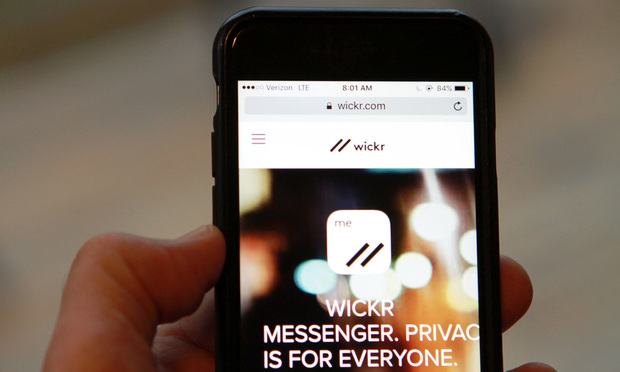The dramatic Waymo v. Uber trade secrets saga may have ended last week, but it’s left the legal industry with questions about more than just self-driving cars—it’s drawn attention to ephemeral messaging.
Ephemeral messages, communications that self-destruct after a given amount of time, came up a few times during the case. Uber faced criticism over allegations its employees used ephemeral messaging, particularly a messaging app made by San Francisco-based Wickr Inc., to keep sensitive information off company servers. Waymo acknowledged that its own employees use Google messaging systems, which have ephemeral capabilities, but only for ordinary business communications.


 Photo by: John Disney/ALM.
Photo by: John Disney/ALM.








